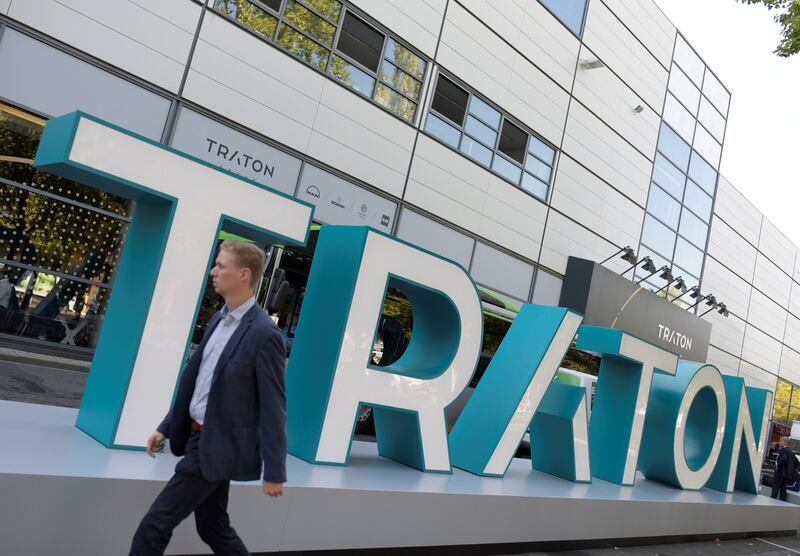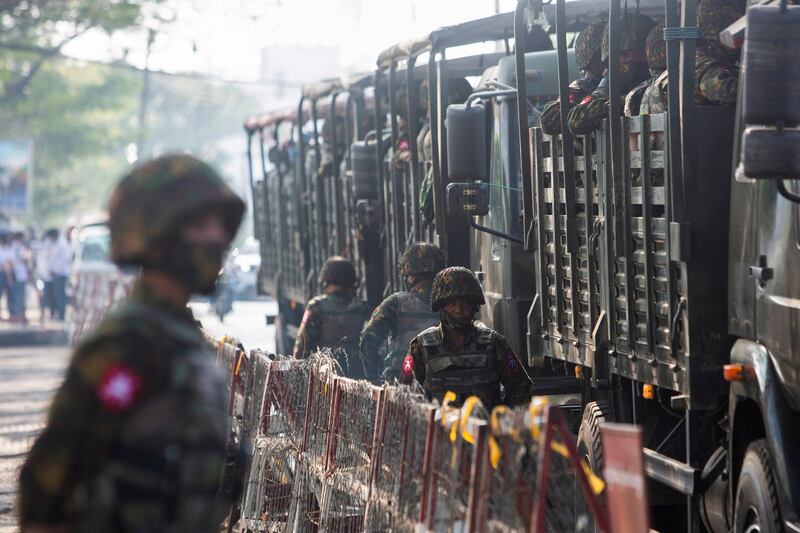A human rights group called on German truck manufacturer Traton SE to cut any business ties to the Myanmar military or divest from a Chinese state-owned firm, in which it has a stake, that the group said supplies military trucks to the junta.
Rights group Justice for Myanmar said in a joint report with data analysis organization C4ADS that Traton and its parent company, Volkswagen, should investigate the Chinese firm’s Myanmar business links and cut business relations with it to avoid complicity.
“There is substantial evidence that the military obtains and assembles these trucks through the support of the Chinese state-owned company Sinotruk, which, in turn, benefits from the investment and collaboration of the German company Traton SE,” the groups said.
Sinotruk’s Hong Kong subsidiary is 25% owned by Traton, and the groups believe that this gives the German firm significant influence over the company.

Myanmar has been in turmoil since the military overthrew an elected government in 2021, ending a decade of tentative reform. Pro-democracy activists have taken up arms, joining forces with autonomy-seeking ethnic minority insurgents to end military rule.
In the more than three years since the coup, more than 5,000 people have been killed by the junta, according to the activist group the Assistance Association for Political Prisoners.
Justice for Myanmar and C4ADS said that recent reporting and public information indicated that Sinotruk’s vehicles are widely used during military operations in Myanmar and that the company had directly engaged with the military through sales and manufacturing support.
For instance, there were at least eight shipments, including disassembled truck parts, between Sinotruk and the Myanmar junta between April 2021 and March 2022, according to global trade records seen by Justice for Myanmar.
“The Myanmar military junta’s continued campaign of repression and violence against the people of Myanmar is reliant on a fleet of military trucks that transport troops and weapons,” the groups said in their report.
“Traton and its parent company, Volkswagen, should conduct a thorough investigation into Sinotruk’s business links,” they said. “Traton must take immediate action to ensure it cuts all business ties to the Myanmar military.”
“Traton should ensure that Sinotruk ends any and all business with the Myanmar military junta or divests from the company in accordance with its international human rights responsibilities.”
A spokesperson at Traton said it did not have any say over Sinotruk’s actions.
“We consider Sinotruk as a financial investment with a 25% equity stake. Traton has no operational influence on their business activity,” said head of external communications Sacha Klingner in a statement, adding that there were no supply relations between Traton, its brands and Sinotruk.
“Like with each of our investments, we continuously monitor performance and development – but we don’t comment or speculate on any potential future M&A [mergers and acquisitions] transactions.”
Sinotruk and Volkswagen did not respond to requests from RFA for comment.
New accountability
The United States and other Western countries have imposed various sanctions on the Myanmar military, while anti-junta groups and rights activists have called on all countries and companies to stop supplying the junta with weapons and other supplies.
While Justice for Myanmar and C4ADS cited multiple voluntary international guidelines for businesses to help protect human rights in their operations and among partners, these are not legally binding for companies found to be violating them.

The EU Council adopted a directive on Friday that could be more effective in ensuring its member states are more accountable for their business partners’ actions.
The directive requires companies with more than 1,000 employees and over 450 million euro in worldwide revenue to “identify, assess, prevent, mitigate, bring to an end to and remedy their negative impact and that of their upstream and downstream partners,” by seeking “contractual assurances from the partners,” among other actions.
EU member states will be responsible for setting up supervisory bodies to monitor and act against companies violating it, an EU press officer told RFA.
Member states like Germany will have two years to apply the directive to their national laws. Unlike former guidelines, this will be legally binding.
Patrick Hoffmann, co-founder of German Solidarity Myanmar, said EU rules could have potential if they targeted a wider range of business relationships, including shareholdings and strategic partnerships.
“Such a national authority could have quite a bandwidth of possibilities on formal investigations,” Hoffmann said, referring to the supervisory body EU members will set up under the directive. “There’s a whole spectrum of things they could do.”
Edited by Taejun Kang.
